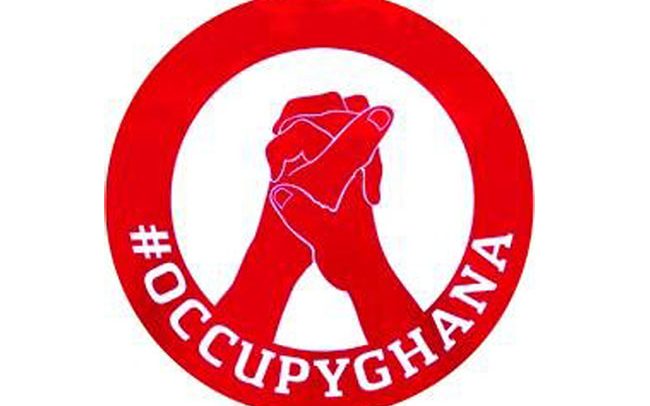Pressure group, OccupyGhana has called on government to investigate, arrest and prosecute all the persons involved in the acts of fraud perpetrated against the state leading to the collapse of seven indigenous banks in the country.
According to the group, government must make public the outcome of all investigations conducted and ensure that the law, both civil and criminal is made to take its course without fear or favour.
It said directors and other officials of the seven banks which were merged by the Bank of Ghana, who have committed crimes against the state, should be ruthlessly and mercilessly prosecuted.
“Those in management or other positions of trust who have been implicated and who have to lose their jobs, should lose their jobs. Those whose personal properties have to be seized and sold to pay back the public debt should be taken through the due process”, the statement suggested.
Breach Of Laws
The statement expressed shock at how some of the banks breached the laws that governed the banking sector, leading to plain theft and acts of fraud as well as “undisguised money laundering”.
The group said it is amazed banks could be established in Ghana with next to no funds and sometimes with funds stolen from government bailout cash extended to other banks.
“We are horrified at the several, repeated and blatant breaches of the law and rules of banking and corporate governance, plain theft, obvious fraud, naked bribery, undisguised money laundering and criminal causing of financial loss engaged in by regulators, industry players and practitioners, and possibly even auditors”.
“Shareholders appeared to help themselves to depositors’ funds as if it were their personal “piggy banks.” Directors and auditors apparently breached their fiduciary duties with reckless abandon. Directors also failed to exercise utmost good faith, shamelessly engaged in ultra vires transactions and other deals with conflict of interest and conflict of duty implications”, the statement pointed out.
Neglect of Regulators
The OccupyGhana statement also abhorred the apparent neglect by the regulatory institutions in the matter which has led to the loss of funds to the state.
“We are shocked at the failure, refusal or neglect of regulators, in the face of several reports evidencing the obvious wrongs and impending collapse, to do anything to stem the tide or stop the flow, save pouring more bailout money into the banks without asking for collateral or even appointing advisers to control the use of the taxpayer’s monies”.
“We see near-fatal collapse of the hub of national development caused by the failure of the regulatory authority and what is appearing to be major corruption linked to, especially, the Banking Supervision Department of the Bank of Ghana”, OccupyGhana indicated.
The statement hinted of a possible exposure of further and deeper rot when the Central Bank sets to deal with other deposit-taking institutions such as the Microfinance and Savings & Loans companies.
The statement, however, hoped that government will act urgently and thoroughly to clean the sector of all criminal elements who have caused much damage to the wealth and future recovery.
Failed Banks
Details are emerging about how two of the seven defunct private banks spent huge amounts of money given to them by the Bank of Ghana (BoG) as bailout to save them from collapse.
Reports indicated that UT Bank and Capital Bank were given a total of over GH?1.47 billion of the taxpayer’s money.
Investigations by the Central Bank revealed that the handlers of the two private entities engaged in ‘willful deceit.’
Apart from UT and Capital Bank, which were taken over by the BoG and given to the GCB Bank per Section 123 of the Banks and Specialised Deposit-Taking Institutions (SDIs) Act, 2016 (Act 930) in August last year, Beige Capital, Sovereign Bank, Construction Bank, UniBank and Royal Bank have recently been taken over and merged into Consolidated Bank Ghana Limited.
Critics are calling for the arrest of the directors of the banks, as well as the BoG officials, who had supervised the plundering of the cash.
Bailout Cash
UT is said to have been given over GH?860 million by the BoG while Capital Bank got GH?610 million, all in the form of liquidity support to enable them improve the fortunes of the financial institutions but the directors blew all the money, putting customers’ deposits and investments in danger.
It has emerged that as at the 2015 financial year, Capital Bank had depleted its capital base to the point where it could no longer meet the request of depositors, and that compelled the Central Bank to provide the bailout.
BY Gibril Abdul Razak


